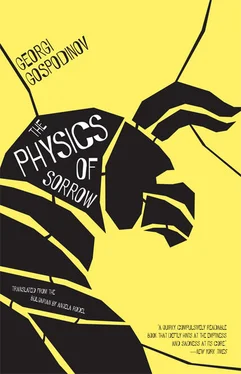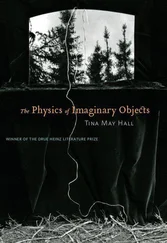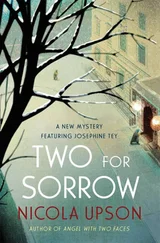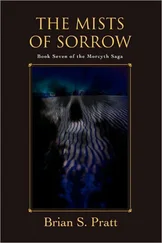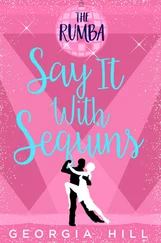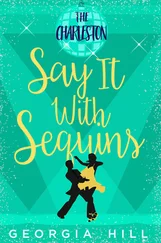Every cliché (and a cliché is nothing more than an abstraction that has swallowed its own tail) becomes dangerous when it is made literal. Three empty, meaningless phrases from the distant twentieth century turned the life of a heretofore united and happy society, in which abstractions did not exist, upside down:. Prepared and trained for the sea of life. The socialist family — the basic cell of our society. To spill your blood for the homeland.
The sea wasn’t far away. They immediately turned it into an Academy, where they began training the young and the old. The teacher would swim out in front, with the students around him in shoals, with their frail, knowledge-hungry bodies, flailing their arms and legs. The more frail and sickly among them quietly sank, falling back and left behind. The survivors felt at home in the water, their backs grew enormous, they knew everything about life in the sea. What erudite athleticism, what academic muscle. the non-drowned poets sang. On land they started to feel like beached whales. And life gradually returned to the sea. (What an evolutionary step backward.)
After that, true to the second line of the Testament, they filled the sea with wooden cells. Every newly married couple received one as a wedding present and lounged in it of their own free will.
Three times a year they celebrated the Day of the Great Bloodletting, on which they injured themselves, so as to offer up spilled blood to the Homeland. And since they had no idea or instructions as to what it was, they simply gathered up the blood in a huge container, which they soon dubbed accordingly: “Homeland.”
There is no other surviving evidence of this civilization.
CARRIERS
A few years ago I decided to back-up my archive due to security concerns. I put the most important information on a disk, then hid the disk in a small box made of gopher wood, sealed with pitch on the inside and outside. I followed the Old Testament instructions, even though Noah’s arks have gone through quite a few changes thanks to new technologies. The original was three hundred cubits long and fifty wide, with a height of thirty cubits, divided into three stories. Now it’s a single disk.
At first, I was considering some fireproof box, but I decided it would be best to follow the description in that book. Pitched gopher wood keeps the water out and always floats to the surface, unlike a metal lockbox. The Book has thought of everything.
Of course, I don’t count on disks alone. They’re unreliable and if the least little thing goes wrong, the whole thing is shot. The more advanced the technology, the more irreparable the damages are. I read somewhere that paper, especially acid-free paper, turns out to be a far more reliable information carrier than any digital device. Its manufacturers say it’ll last up to 1,000 years. That’s surely more than we can say for this world. For this reason, I continue to rely on my boxes full of clippings and old-fashioned notebooks. Just in case the world turns analogue again. The likelihood is not at all negligible.
Since other capsules depicted the world like a postcard — kind, pretty, dancing, endlessly inventing various trinkets — the capsule in my basement had to contain the signs and warnings, the unwritten stories, such as “The History of Boredom in the 1980s,” or “A Brief History of the Ephemeral,” or “An Introduction to the Provincial Sorrow of Late Socialism,” “A Catalogue of the Signs We Never Noticed,” “An Incomplete List of Fears During 2010,” or the stories of Mad Juliet, Malamko, Chingachook, the anti-historical person, my grandfather, the abandoned boy, the stories of all those coming of the void and going into the void, nameless, ephemeral, left out of the frame, the eternally silent ones, a General History of That Which Never Happened.
If something is enduring and monumental, what is the point of putting it in a capsule? Only that which is mortal, perishable, and fragile should be preserved, that which is sniffling and lighting matchsticks in the dark. Now that’s what will be in all the boxes in the basement of this book.
NOAH COMPLEX
I imagine a book containing every kind and genre. From monologue through Socratic dialogue to epos in hexameter, from fairytales through treatises to lists. From high antiquity to slaughterhouse instructions. Everything can be gathered up and transported in such a book.
Let him write, write, write, let him be recorded and preserved, let him be like Noah’s ark, there shall be every beast, large and small, clean and unclean, thou shalt take from every kind and every story. I’m not so interested in the clean genres. The novel is no Aryan, as Gaustine always said.
Let me write, write, write, let me record and preserve, let me be like Noah’s ark, not me, but this book. Only the book is eternal, only its covers shall rise above the waves, only the beasts inside, between its pages swarming with life, will survive. And when they see the new land, they will go forth and multiply.
And what is written shall be made flesh and blood and shall be brought to life in all its perfection. And “the lion” shall become a lion, “the horse” will whinny like a horse, “the crow” will fly from the page with an ugly croak. And the Minotaur will come out into the light of day.
NEW REALISM
I hadn’t left the Underworld for a long time, so recently I decided to take a bit of a stroll. I waited for evening to fall, at this time of year it’s almost dark by five in the afternoon. That makes my transition from the basement easier. Unfortunately the Christmas lights were already up and the darkness had retreated into the corners. I chose the darker streets, breathing in the cold air, and found myself in front of a gallery I used to enjoy going into. The gallery was still open, I had caught the last few days of an exhibit showing “The New Realism.” There were no visitors at that hour, so I decided to go in.
I peered into the small glass containers, stuffed full of wine corks, useless odds-and-ends, into the traces of worn-away posters by Raymond Hains, Arman’s long ribbons of paint, squeezed out of the tubes and stretched out like colorful snakes taxidermied in glass. I stood for a long time in front of the remains of a dinner by Daniel Spoerri, glued to the table and hung on the wall like three-dimensional pictures — a frying pan with dried grease, a table for two with two empty coffee cups, the grounds still in the bottom, two glasses and an empty bottle of Martini from the 1970s, a burned-down candle, only wax left in the holder, a crumpled napkin. Someone was here and has left. A conversation has taken place, something was said, something was left unsaid, they sat for a long time, the candle was burning, they were enjoying themselves, they got up and left. Did they have sex in the other room? Was the coffee before or after that? If you look even closer, you’ll probably see lipstick on one of the glasses. From forty years ago.
Those people are most likely gone now. Only the coffee grounds remain. The new realism — new Noah’s arks from the already-old twentieth century.
It was in the air. They all had a premonition of apocalypse in the late ’60s and ’70s, these new realists. Sometime around then, Christo started wrapping the world. As if getting ready to leave. Everything has to be packed up. We gather up our luggage, we take off. From the little wrapped rocking horse (his saddest work, in my opinion), to the bridge at Point Neuf. Come onnn, we’re moving ouuut. They’re going to knock down the house.
MEMORIES OF MOVES
I’ve known it ever since my childhood, because of our frequent moves from apartment to apartment, that strange feeling when objects are removed from everyday use, the chair is no longer a chair, the table is not a table, the bed has been taken apart. The dresser is nothing but drawers and wooden shelves. The books are stuffed into white plastic bags stamped “crystallized sea salt,” as if they were fish needing to be salted. I wonder if it will sting afterward when I page through them.
Читать дальше
